What Real Estate Experts Want You to Know Before You Buy a Second Home
Looking for a vacation home or rental property? Here’s what you should know when buying a second home, according to the pros.
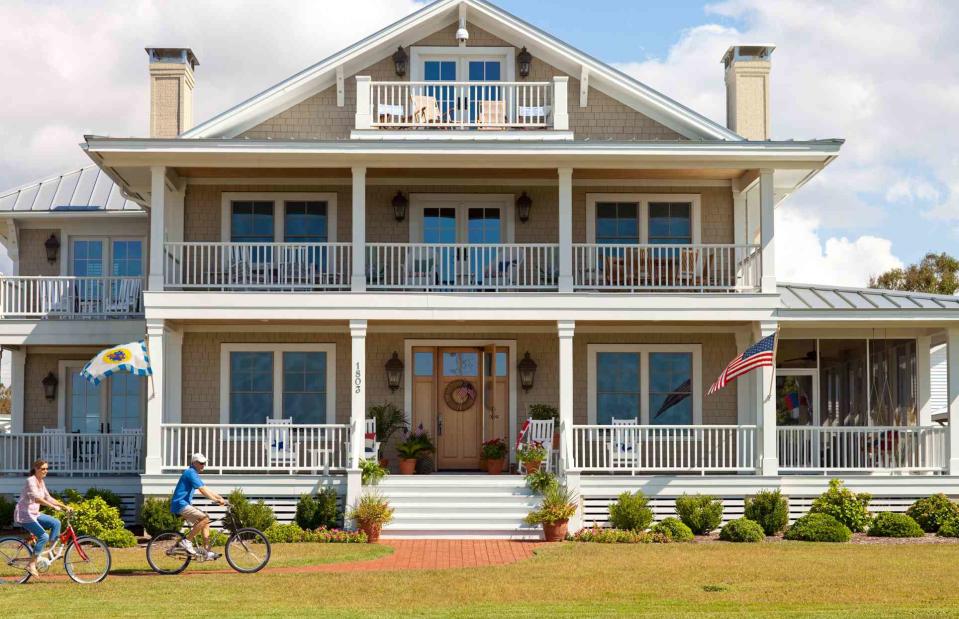
Buying your first home is a major endeavor, but buying a second home while planning to keep the first is a unique situation that calls for lots of advanced planning.
You might be looking to buy a second home to use as a vacation home, or you might be looking to invest in a home you rent out to tenants or other travelers. Whatever the case, you’ll need to have your finances in order.
“A poorly timed second home purchase can lead to financial distress, so making a well-informed decision can help avoid adverse outcomes,” says Steve Schwab, CEO and founder of Casago, a vacation home rental and property management company.
These experts have some suggestions for what to consider as you shop for home number two.
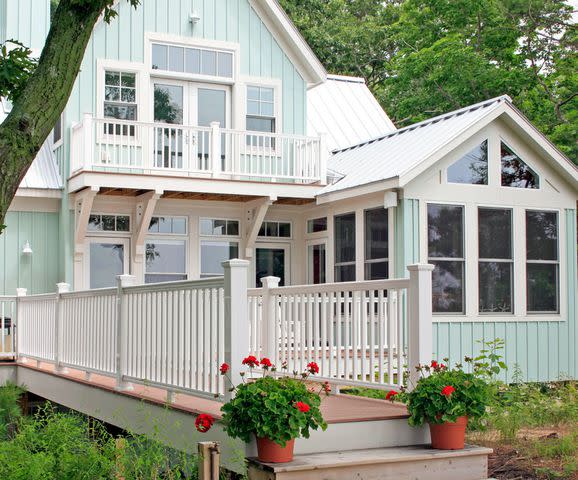
Why You Might Want a Second Home
The most common reason to buy a second home might be to use it as a vacation property or secondary residence.
“A second home can provide you and your family with a familiar vacation spot that you can enjoy on a regular basis, whether you prefer to visit monthly, quarterly, or yearly,” says Angela Graziano, a broker associate with Baird & Warner licensed in Naples, Florida, and in Barrington, Illinois. “It can serve as a special venue for hosting friends, family reunions, and other celebrations, allowing you to create cherished memories with your loved ones that will last a lifetime.”
Another common reason is for investment purposes.
“By renting out your second home, you can generate income that can help offset the cost of owning property or even provide you with a steady source of revenue over time,” Graziano says. “Purchasing a second home can also be a smart investment in your future retirement plans. By buying a second home now, you can potentially use it as your retirement ‘forever home’ later on, ensuring you have a comfortable and familiar place to call home once you reach retirement age.”
But those are only two of many reasons you might find yourself on the market for a second property.
“Aside from being a vacation property or a rental space, a second home can be a substantial financial investment,” says Schwab. “It can serve as a long-term investment strategy and even offer tax benefits. Diversifying your assets with a second home can counteract stock market volatility, and it can also act as a valuable asset to pass on to your heirs.”
Related: What First-Time Homebuyers Need to Know, According to Real Estate Pros
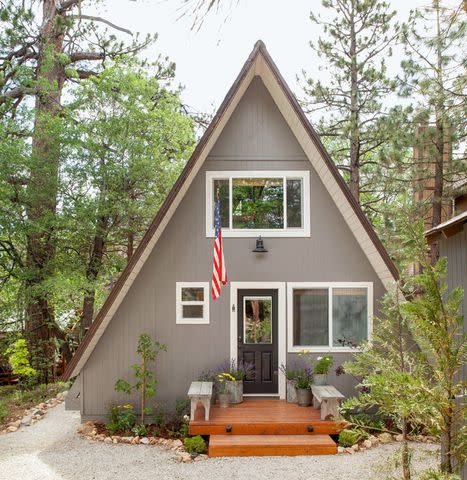
Money Matters
Perhaps the biggest hurdle to purchasing a second home is the financing. You’ll have to do a lot more to prove you can afford a second mortgage than you might while buying your first property. That's because, as experts explain, banks view second homes as riskier loans.
“A second home will bring renewed scrutiny of your financial wellness and often even more of a microscope,” says Andrew Pasquella, a Realtor at Sotheby’s International Realty. “In the ideal world your credit score, income, and assets have only grown since buying your first home, but that’s not always the case. Missed payments and an increase in your debt load will make it more difficult to qualify for the second house.”
Beyond the additional scrutiny, you’ll have to jump through the same hoops you otherwise would for a first or even third home.
“Lenders will typically look at your down payment, credit, and how the property will be used—whether it's intended as a personal second home or an investment/rental property,” Graziano says.
Graziano says most lenders will look for a downpayment between 20 and 30 percent of the home’s listing price.
“The borrower may not be able to qualify for the loan amount, homeowners’ insurance, and possible flood insurance payment if their debt-to-income ratio is too high,” she adds.
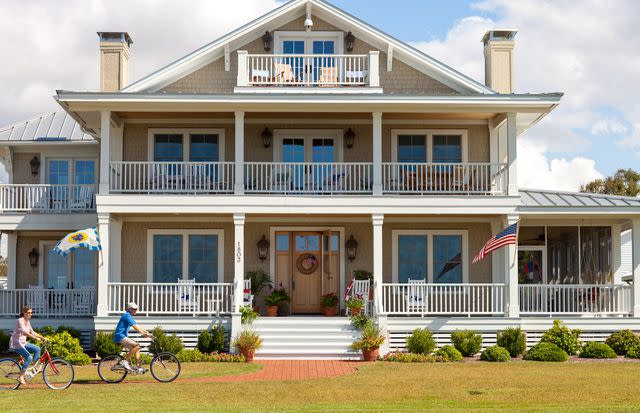
Another complicating factor is interest rates.
“Interest rates on a non-primary residence are typically higher, and will vary depending on your credit score, down payment, and the lender you work with,” Graziano says. “Borrowers can expect to pay a premium above the current mortgage rate for a second home.”
In general, these interest rates can be up to 1 percent higher, Schwab says,
If you plan to rent out your second home, start by speaking with a financial planner or licensed agent in the area who can recommend a management company or leasing team that can help find and manage tenants, Graziano says.
Rod Barr, broker-owner with The Sutherland Barr Group at Better Homes and Gardens Real Estate says down payments can be higher for second properties as well.
“Unfortunately, there are usually higher down payments, anywhere from 10%—not many, and at even higher costs—to 25% down are required,” he says. “Usually the higher amount is required, especially for fixed-rate mortgages. There are in most cases some type(s) of financing fees, in the terms of points and so on that increase the buyer’s financing cost obligation or upfront cash requirements. Adjustable Rate Mortgages (ARMs) can sometimes decrease these costs and interest rates. We are recommending ARMs as part of the buyer’s financing options for their purchase.”
From there, you’ll want to make sure you’re doing things by the book.
“You may also need to consult with a tax consultant to understand the tax ramifications of purchasing a second home,” Graziano says. “A financial planner can help you assess your situation based on your specific criteria. Income generated by renting out a second home is taxable, and there may be additional state or local taxes required for renting out the property—especially if your second property is in a different state than your primary residence.”
Schwab says it’s not all bad news when it comes to taxes, though.
“Contrarily, there can be substantial tax benefits. Taxes, interest, insurance, specific expenses, losses, and depreciation can reduce your tax bill, sometimes resulting in significant savings,” he says.
Related: How First-Time Homebuyers Snagged Their Dream Home in a Hot Market
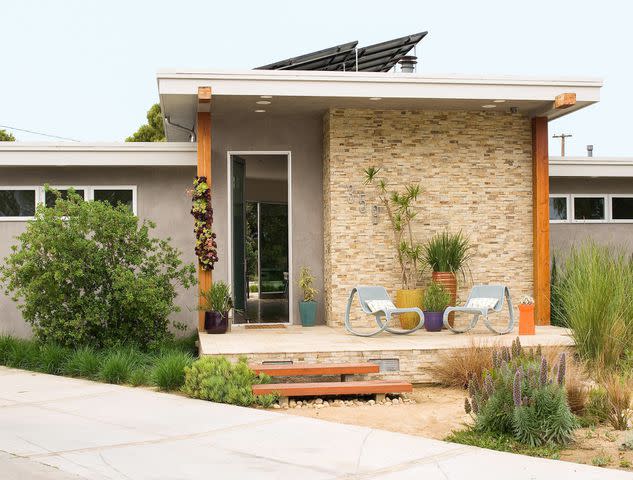
Finding a Second Home
Your second home is probably in a different location than where you currently live. You could be searching in a different part of the state or in a different part of the country. If that’s the case, you’ll want to find the right agent to help.
“Buyers considering a second home in a different state should have first-hand knowledge of that market, or work with an agent that does,” says Graziano. “A knowledgeable agent can also help manage and maintain the property by referring you to a trusted home watch service or management company.”
As you search for a home, Graziano suggests looking at the amount of space and number of bedrooms you want, as well as the location of the second home. You’ll also want to know whether there are any homeowner associations in place that might have restrictions when it comes to owning a second home. It’s important to do your research and gather as much information as possible to make an informed decision.
If it’s a rental property you’re after, you’ll want to shop with an eye in mind for tenants.
“Consider what potential renters would find appealing if you’re looking for a property to generate income,” Graziano says. “Think about amenities, location, space, lighting, cleanliness, and updates to the property. You'll want to ensure that the home is easy to rent and will attract reliable and responsible tenants. You can find a second home that meets your needs and preferences by doing your due diligence ahead of time.”
Schwab suggests looking at apartments and condos, too.
Pasquella says if you're looking to rent out your second property as a way to make money, do your homework to make sure that’s a wise investment.
"Amenities matter in vacation properties that you also want to rent," he says. "Chances are, you’re not the only one who has a vacation or rental property where you’re buying; stand out from the pack by complimenting the vibe of the area in both decor and amenities."
Finally, research the location to ensure it's a destination for travelers or in an area where housing is needed.
“Make sure you’re buying a rental property where people want to [stay]. Last I checked, rental properties in Antarctica were down,” Pasquella says.
Related: Should You Buy a House in 2023?
For more Better Homes & Gardens news, make sure to sign up for our newsletter!
Read the original article on Better Homes & Gardens.

